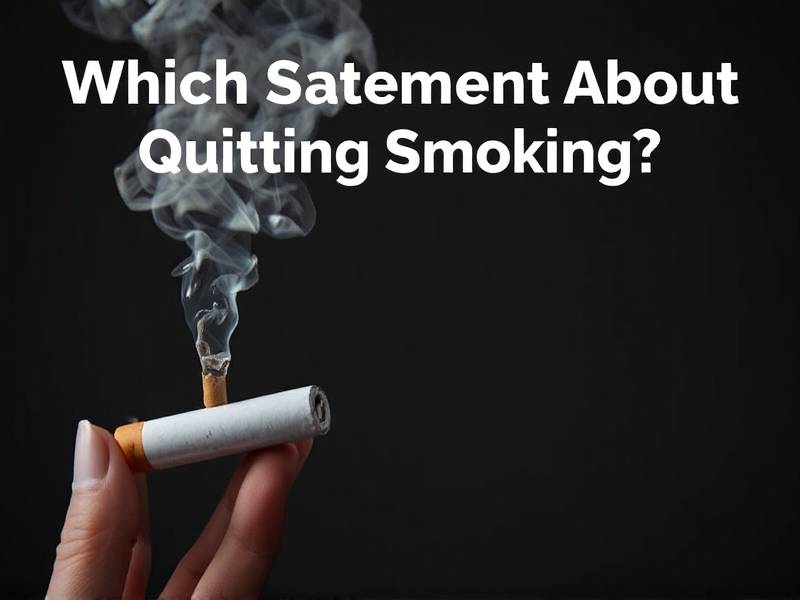Which Statement About Quitting Smoking Is True?
The Myths and Facts: Unveiling the Truth
Understanding the Challenge
Quitting smoking is one of the most challenging tasks many individuals face. The journey is fraught with temptation, withdrawal symptoms, and the psychological reliance on nicotine. With so much information available, it's easy to get confused about what really works when it comes to quitting smoking. Let's explore some common statements about quitting smoking and determine which ones are true.
Statement 1: Cold Turkey is the Most Effective Method
Reality Check: While some may find success with cold turkey, this method isn't for everyone. A study published in the Journal of the American Medical Association found that gradual reduction in smoking followed by a quit date was just as effective as cold turkey. The key is finding a method that suits your personality and lifestyle.
Why Gradual Reduction Works
Gradual reduction allows individuals to adjust their nicotine intake over time, reducing withdrawal symptoms. It can also help smokers develop new habits and coping mechanisms before they completely stop smoking.

Statement 2: Nicotine Replacement Therapy (NRT) Is Ineffective
Reality Check: On the contrary, NRT has been proven to be an effective tool for quitting smoking. NRT provides a controlled amount of nicotine to reduce cravings and withdrawal symptoms. According to the National Center for Biotechnology Information (NCBI), NRT doubles a person's chances of successfully quitting smoking compared to no treatment at all.
How NRT Helps
NRT comes in various forms such as patches, gum, lozenges, inhalers, and nasal sprays. These products allow individuals to gradually reduce their nicotine intake while managing cravings more effectively.
Statement 3: Smoking Cessation Medications Are Unsafe
Reality Check: Smoking cessation medications have been rigorously tested and approved by health authorities worldwide. While they may not be suitable for everyone, they are generally safe when used under medical supervision. The Food and Drug Administration (FDA) has approved several medications for smoking cessation, including varenicline (Chantix) and bupropion (Zyban).
Ensuring Safety with Medications
Before starting any medication for smoking cessation, it's essential to consult with a healthcare professional who can assess your health status and recommend the most appropriate treatment.
Statement 4: Hypnosis Can Cure Smoking Addiction
Reality Check: Hypnosis has been shown to help some individuals quit smoking; however, its effectiveness varies from person to person. A study published in the Journal of Consulting and Clinical Psychology found that hypnotherapy was moderately effective in aiding smoking cessation but not as effective as pharmacological treatments.
Considerations When Using Hypnosis
If you're interested in trying hypnosis, it's important to find a qualified hypnotherapist who specializes in smoking cessation.

Conclusion: Combining Strategies for Success
The truth about quitting smoking lies in understanding that there is no one-size-fits-all solution. Combining different strategies such as gradual reduction, NRT, medication, or even alternative methods like hypnosis can increase your chances of success. Remember that seeking support from friends, family, or support groups can also play a crucial role in your journey towards a smoke-free life.
By dispelling myths and providing accurate information about quitting smoking, we hope this article helps you make informed decisions about your health and well-being.
